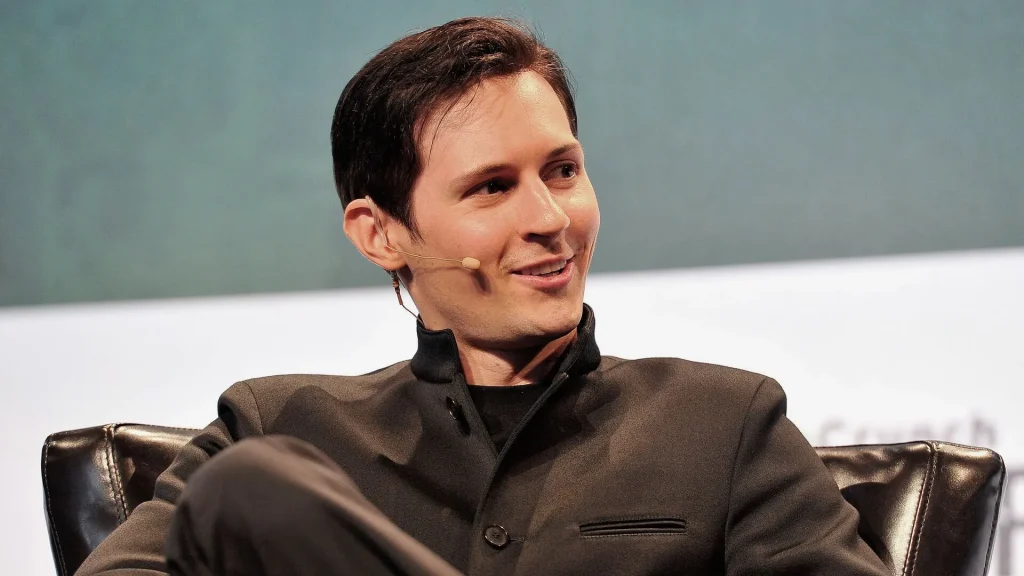
Telegram, the messaging app founded by Pavel Durov, has become a focal point of controversy as it gains notoriety for being a haven for far-right activists and extremists. The platform’s minimal content moderation policies have allowed it to become a key gathering place for individuals and groups that have been banned from other social media networks. This trend has drawn significant attention, particularly in light of recent legal challenges facing Durov.
The Role of Telegram in the Spread of Extremism
Over the years, Telegram has built a reputation as a refuge for those seeking to evade content moderation on more mainstream platforms like Facebook and Twitter. Its features, including encrypted messaging and private channels, offer users a high degree of privacy. This has proven attractive to far-right groups, conspiracy theorists, and other controversial figures. These users have leveraged Telegram to organize, recruit, and spread their ideologies without facing the same level of scrutiny found on other networks.
Recent Developments and Legal Challenges
The recent arrest of Pavel Durov near Paris has intensified discussions about Telegram’s role in enabling illegal content. French prosecutors have charged Durov with “complicity” in the spread of child exploitation material and other illicit activities on the platform. This arrest has been portrayed by right-wing figures as an assault on free speech. For instance, conservative commentator Tucker Carlson, who has a significant following on this app, has framed the incident as part of a broader attack on freedom of expression.
This app has responded to the charges by asserting that the platform itself should not be held responsible for the misuse of its services. A company statement described the allegations as “absurd,” maintaining that the platform’s role is not to police individual user content beyond basic moderation.
Content Moderation Practices and Platform Dynamics
Telegram’s content moderation policies are notably more relaxed compared to those of other social media platforms. This permissiveness has led to criticisms that the app facilitates the spread of extremist content and illegal activities. Unlike platforms such as Meta or Twitter, Telegram has shown reluctance to cooperate with government requests for content removal or moderation. This approach has attracted various extremist groups, including the Proud Boys and neo-Nazi organizations, which have used this app to coordinate activities and disseminate propaganda.
Key Figures and Groups on Telegram:
Several prominent far-right figures and extremist groups have amassed significant followings on Telegram, including:
- Nick Fuentes: A white nationalist with over 63,000 followers who frequently posts inflammatory content.
- Keith Woods: An Irish white nationalist with more than 30,000 subscribers who promotes extreme nationalist views.
- Marjorie Taylor Greene: U.S. Representative with two verified channels that collectively have over 98,000 followers, where she shares her political commentary and advocacy.
These individuals and groups use Telegram as a platform to circumvent bans and reach audiences that might otherwise be inaccessible on more regulated networks.
Impact and Future Outlook of Telegram
The ongoing scrutiny of Telegram and its founder highlights the broader issue of balancing free speech with platform responsibility. While Telegram’s lax moderation policies have made it a critical tool for extremists, they also raise questions about the app’s role in moderating harmful content. The platform’s reluctance to address these issues proactively has led to its association with various controversial activities and groups.
As investigations continue and legal challenges unfold, the future of Telegram’s content policies and its role in the digital ecosystem remain uncertain. The platform’s ability to navigate these challenges while addressing concerns about extremist content will be crucial in determining its role in the global conversation on free speech and online safety.
Conclusion
Telegram’s evolution into a key platform for extremists and its founder’s legal troubles underscore significant challenges in content moderation and platform responsibility. As debates over the platform’s role continue, the outcome of ongoing investigations and legal proceedings will likely have far-reaching implications for how social media platforms manage harmful content and balance free speech with safety concerns.